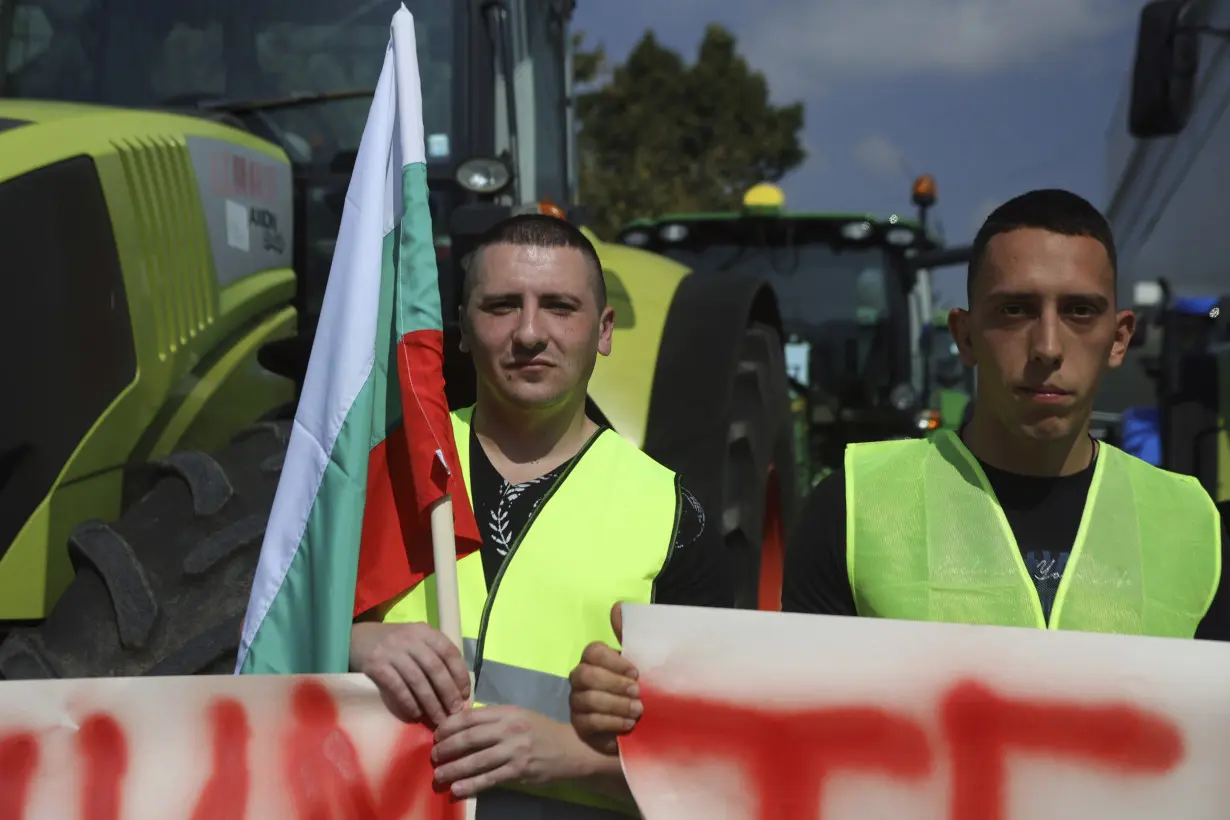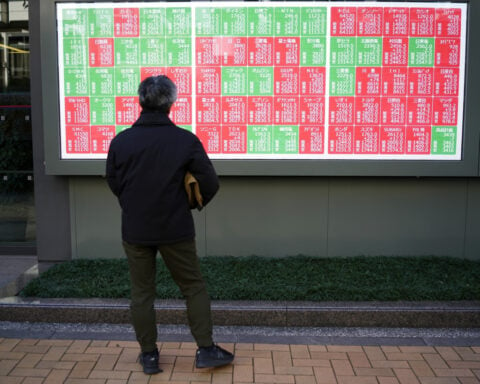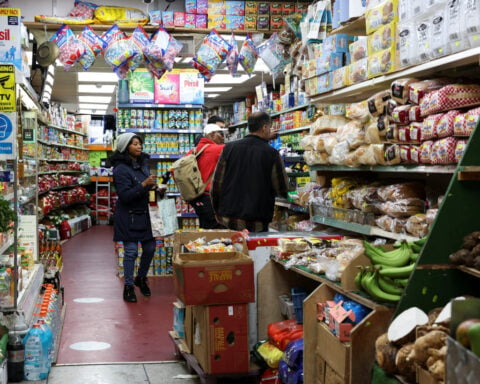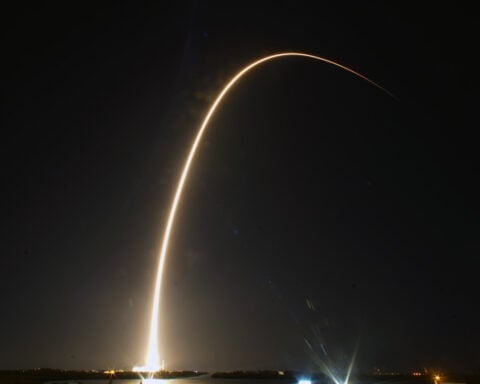PERNIK, Bulgaria (AP) — Farmers across Bulgaria protested Monday after the government lifted a ban on food products from Ukraine, complaining that the move will cause an influx that drives down prices for local growers.
Hundreds of farmers around the country converged in their tractors, many of them waving national flags and honking horns as they blockaded main roads and disrupted traffic to express their anger.
The protest follows a decision Thursday by Bulgarian lawmakers to allow imports from Ukraine to resume, saying the ban had deprived the government of tax revenue and led to higher food prices.
A day later, the European Union also decided not to renew the overall ban on Ukrainian food heading to five member countries. Poland, Hungary and Slovakia have since unilaterally imposed their own blockades, threatening European unity on support for Ukraine against Russia’s invasion.
The rising tensions come after Russia halted a U.N.-brokered agreement last month to guarantee safe shipments of Ukrainian grain through the Black Sea to parts of the world struggling with hunger. It has left more expensive road, rail and river routes through Europe as largely the only way for Ukraine, a major global agricultural supplier, to export its food products, though there has been some limited ship movements to its ports.
Bulgaria’s National Association of Grain Producers said in a statement Sunday before the protests that farmers are facing “unprecedented difficulties” and called for a ban on a litany of food products from Ukraine. These include sunflower, wheat, corn and rapeseed, as well as crude oil, meat, fruits and vegetables, milk, honey and dairy products.
Ventsislav Mitkov, chairman of the United Farmers National Association in Bulgaria, said at a protest in the western town of Pernik, about 30 kilometers (18.5 miles) from the capital, Sofia, that they want to ban “absolutely everything.”
“Stop imports from Ukraine. We mean wheat, sunflower, canola, all cereals, honey,” he said. “We want increased control and immediate payment of the European measures.”
The EU said “the market distortions” created by Ukrainian grain have disappeared. But farmers in the five member countries, including Romania, still complain that a glut of Ukrainian products is hurting their livelihoods.
EU agriculture ministers met Monday and urged unity.
“I understand that there are challenges in the neighboring countries, but we need to tackle those challenges in a way that we are respecting the internal market rules and also the international trade rules,” said Finland's agriculture minister, Sari Essayah.
The protesters in Bulgaria have vowed to continue demonstrations until their demands have been met.
“Low-quality, cheaper products than ours are sold in the shops,” Vassil Dzhorgov, a farmer from the eastern town of Radomir, told The Associated Press. “We are operating at a loss, and therefore we will give up.”
Ukraine agreed to put measures in place to control the export of wheat, corn, rapeseed and sunflower seeds to neighboring EU countries. It also will introduce proposals — for example, an export licensing system — within 30 days to avoid grain surges, the EU said.
___
McGrath reported from Manavgat, Turkey.

 Bangladesh Supreme Court acquits ex-Prime Minister Zia, clearing the way for her to run in elections
Bangladesh Supreme Court acquits ex-Prime Minister Zia, clearing the way for her to run in elections
 British author Neil Gaiman denies ever engaging in non-consensual sex as more accusers come forward
British author Neil Gaiman denies ever engaging in non-consensual sex as more accusers come forward
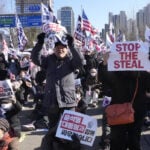 A look at the events that led up to the detention of South Korean President Yoon Suk Yeol
A look at the events that led up to the detention of South Korean President Yoon Suk Yeol
 Two private lunar landers head toward the moon in a roundabout journey
Two private lunar landers head toward the moon in a roundabout journey
 TikTok preparing for U.S. shut-off on Sunday, The Information reports
TikTok preparing for U.S. shut-off on Sunday, The Information reports
 Japan's Makino Milling requests changes to unsolicited bid from Nidec
Japan's Makino Milling requests changes to unsolicited bid from Nidec
 As Los Angeles burns, Hollywood's Oscar season turns into a pledge drive
As Los Angeles burns, Hollywood's Oscar season turns into a pledge drive
 As fires ravage Los Angeles, Tiger Woods isn't sure what will happen with Riviera tournament
As fires ravage Los Angeles, Tiger Woods isn't sure what will happen with Riviera tournament
